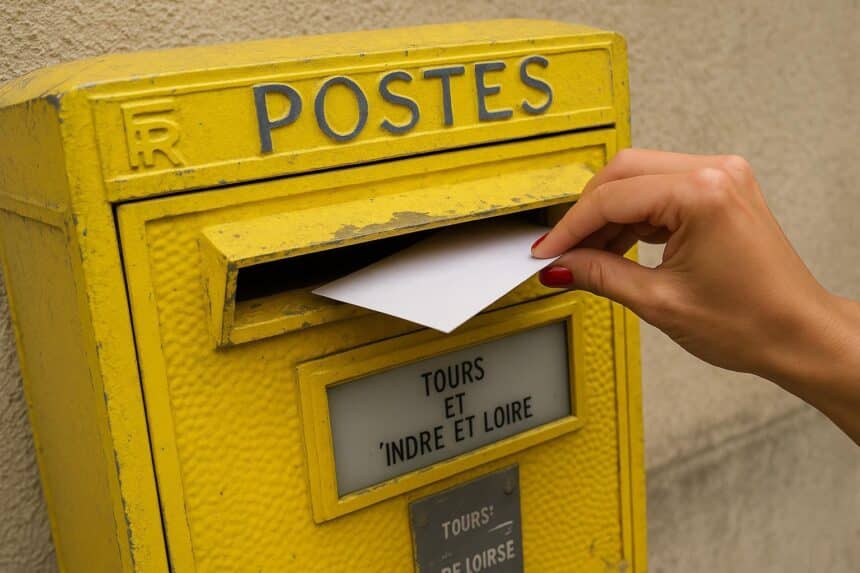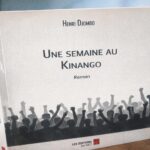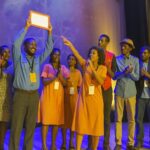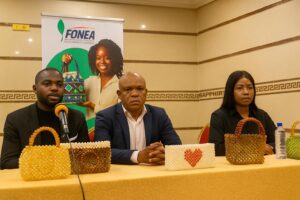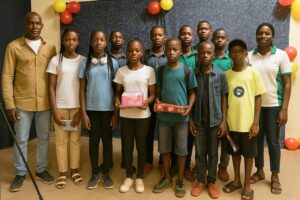A letter travels fast through Brazzaville
The latest handwritten missive circulating in Brazzaville markets carries a hopeful refrain. Titled “Lettre de Yakamambu”, the text urges a mythical herald to sound his horn and summon Congolese citizens toward peace, love and fraternity. Its simple cadence has already sparked conversations from Poto-Poto to Pointe-Noire.
As Congo-Brazzaville prepares for end-of-year gatherings, the call arrives at a delicate moment. Price tensions, transport worries and flood alerts weigh on households. Against this backdrop, the poem’s refrain—“Venez, la Paix est là”—feels like a soft drum above the everyday noise.
From private note to viral anthem
Teacher and storyteller Diag-Lemba, who signs the letter, says he simply wanted “a reminder of ancestral wisdom” for his friend Mbulunkwé. Yet photocopies appeared at the Université Marien-Ngouabi library two days later, then scans traveled across Telegram channels popular with students.
“I’m no politician,” he smiles, seated near the Marché Total minibus stop. “I just borrowed our elders’ words.” His caution is understandable; the poem touches unity and governance, themes traditionally handled with tact in Congo’s public space.
Mbongui tradition highlighted
Anthropologist Charlène Banzouzi notes that the poem’s call to “faire la Chaîne d’Union” refers to the mbongui, a Kongo round-house where disputes are resolved in open conversation. “The circle symbolises equality; nobody sits higher,” she explains in a recent radio interview.
In Brazzaville’s Makélékélé district, elder Jean-Pierre Kiamoué has hosted such circles for decades. He believes the letter revives a fading habit. “When youths come with headphones, I invite them to sit and talk. They discover that dialogue is not an old-fashioned word.”
Youth engagement on TikTok
At Lycée Chaminade, literature teacher Mélissa Mvoula used the ode in class to discuss poetic devices and civic duty. “They counted the alliterations, then linked them to current events,” she reports. “Many said the line ‘Saisissez-la; oubliez ce qui vous divise’ felt written for them.”
Some students later posted short TikTok recitals, layering the words over afrobeats instrumentals. While the clips gather modest views, youth group coordinator Armand Loufoua observes they show a thirst for positive content. “Young people are tired of online insults; this gives them better lyrics,” he says.
Government and health actors support message
The Ministry of Culture’s spokesperson welcomed the grassroots momentum during a weekly briefing, highlighting its alignment with the Decade of Peace and Unity launched last year. Without endorsing any particular movement, officials praised “creative citizens who choose dialogue over division” and encouraged community screenings of the poem.
Municipal authorities in Pointe-Noire have already scheduled a reading for next Sunday on the esplanade of La Côte Sauvage. Organisers promise spoken-word, football freestyles and free blood-pressure checks. “Peace also means health,” argues Dr. Sonia Ndinga, whose clinic will provide the nurses.
Past odes that shaped society
Congo’s post-independence literature often blurred poetry and civic mobilisation. Historian Marcel Mabiala recalls the 1972 anthem “Nkolo Mboka” that called miners back to work after strikes. “Verses travel faster than decrees,” he notes, suggesting Yakamambu’s horn belongs to a long lineage.
Nevertheless, new media change the scale. Where older chants relied on megaphones, today a single PDF can cross rivers within seconds. Communication researcher Prisca Ngatsé warns, however, that virality without context may dilute meaning. She advocates adding footnotes explaining the mbongui concept before mass distribution.
Upcoming events around the peace ode
Diag-Lemba plans to stay in the background, but he concedes the story may grow. Friends propose turning the poem into a traveling performance linking Brazzaville, Dolisie and Ouesso by train. Funding is not secured yet, yet they argue ticketed sessions could support displaced flood victims.
In the meantime, the writer still signs off with a playful “Comprenne qui pourra”. The phrase, roughly “let whoever can understand, understand”, has become a hashtag in campus corridors. Perhaps that ambiguity is the poem’s greatest strength: it invites personal ownership rather than prescriptive answers.
Whether sung, tweeted or whispered at the next neighbourhood meeting, the horn of Yakamambu now belongs to every Congolese ear willing to listen. If enough voices repeat its cadence, the sound may swell into exactly what the letter asked for: a common, sustainable peace.
For readers wishing to experience the ode live, the National Library’s amphitheater will host an open mic this Friday at 5 p.m. Entry is free, though organizers suggest donating unused textbooks for rural schools. Printed copies of the poem will be offered in French and Lingala.
Local radio station Radio Mucodec plans to broadcast a nighttime reading during its 22:00 culture slot, accompanied by a choir from the School of Arts. Listeners can send WhatsApp voice notes finishing the line “Construisez…”; the best contributions will receive prepaid transport cards for December commuting.

